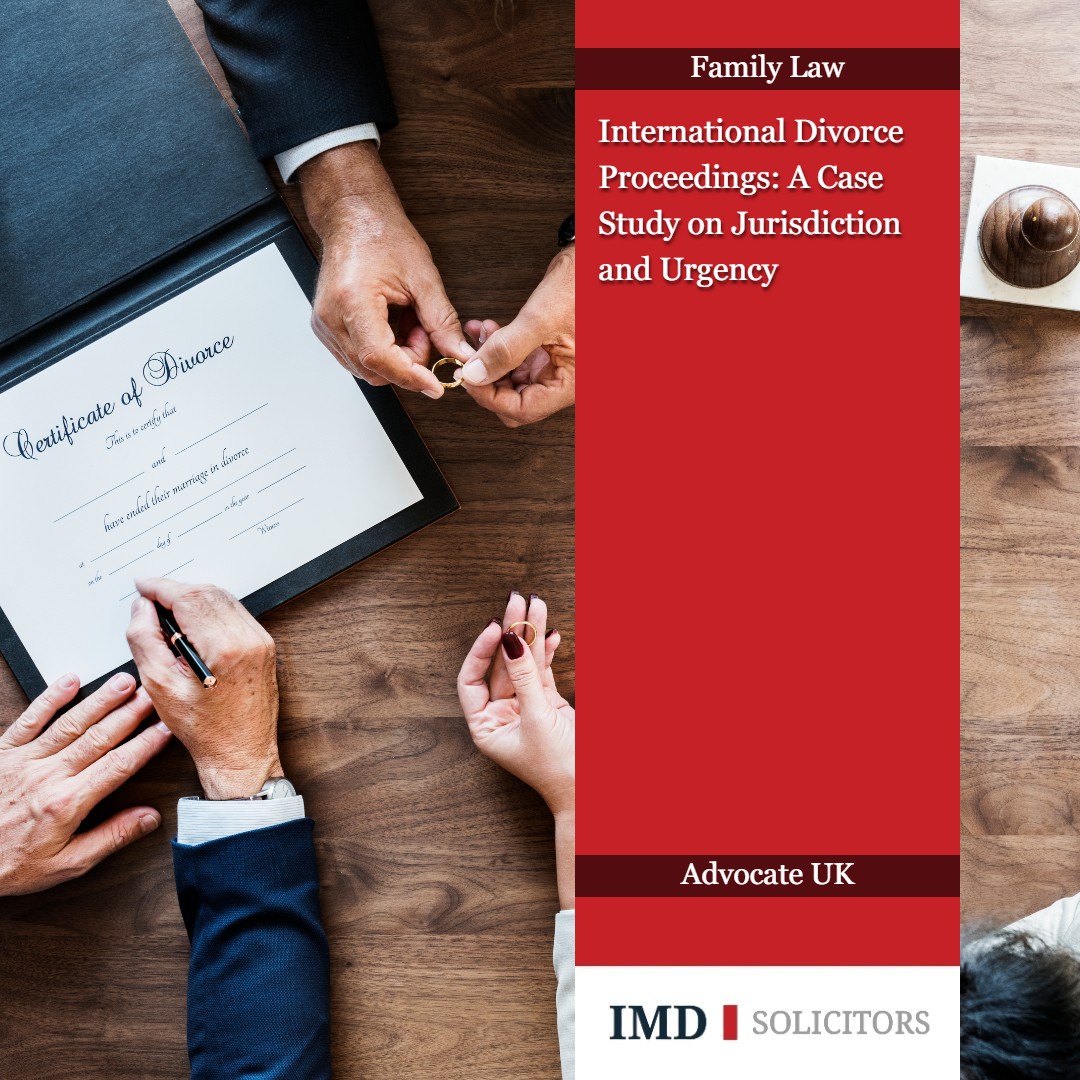International Divorce Proceedings: A Case Study on Jurisdiction and Urgency

Speak to a member of our specialist international team of UK family lawyers today on 0330 107 0107.
Introduction
The complexity of divorce proceedings increases significantly when they span multiple jurisdictions. This case study examines a situation involving a French national, residing in Hong Kong, and his ex-wife living in England, highlighting some of the legal challenges and strategies employed to address jurisdictional disputes in international divorce proceedings.
Case Background
The client, a French national working in Hong Kong, initiated divorce proceedings in France. Despite the ongoing process in the French courts, his ex-wife issued divorce proceedings in England. This action raised significant issues concerning the appropriate court for the proceedings to proceed in; particularly considering Brexit and the resulting changes in the legal framework governing EU and UK divorce proceedings.
Legal Analysis
The central legal issue in this case revolves around the conflict as to the appropriate forum between the English and French courts. Historically, within the EU, the principle of the first divorce petition being filed tended to hold precedence; determining where the divorce proceedings would proceed and resulting in the other being stayed. However, with the UK’s departure from the EU, this rule no longer applies directly to the UK, leading to a more discretionary approach by the English courts.
The English legal system allows for divorce proceedings to be initiated even if parallel proceedings are ongoing in another country (with some limited exceptions). To prevent the proceedings continuing in the courts in this jurisdiction, an application to stay needs to be made. The court’s discretionary flexibility necessitates a careful analysis of which forum is most appropriate for the divorce to take place, considering all circumstances of the case.
One of the key aspects of the approach to international divorce is the doctrine of forum conveniens, or the “appropriate forum.” Even if parallel proceedings are ongoing elsewhere, the English courts have the discretion to proceed with a divorce case if England is deemed to be the most suitable jurisdiction for resolving the matter. This involves a comparative analysis of all of the circumstances of the case including, the connection each party has to the respective jurisdictions, the convenience for both parties, potential legal outcomes, and where most matrimonial assets are located.
Practical challenges
Our client faced immediate challenges, particularly in ensuring that his urgently issued application to stay the English proceeds was considered by the English Camily Courts as soon as possible (involving numerous emails and calls to the helpline). Leveraging our advanced IT systems and online platforms, we were also able to facilitate swift coordination between the client in Hong Kong, his representatives in France, and our legal team in England. This coordination was crucial in preparing and submitting an urgent application to stay the English proceedings, with the aim of allowing the divorce to continue in France. This was all done within 24 hours of being instructed.
Practical Implications for Divorcing Couples
For individuals involved in potential cross-jurisdictional divorces, the English legal system’s flexibility underscores the importance of obtaining expert legal advice early in the process (often including foreign lawyers). Strategic considerations include:
- The timing and location of filing for divorce, which could influence the choice of jurisdiction.
- The comparative analysis of potential outcomes in different jurisdictions, especially concerning financial settlements and arrangements for children.
- The need for swift action in cases where jurisdictional advantage is a factor, balanced against the strategic benefits of negotiating settlements across jurisdictions.
Conclusion and Key Takeaways
This case study illustrates the intricate legal landscape surrounding international divorce proceedings post-Brexit. It highlights the need for individuals facing such situations to seek knowledgeable legal representation that is adept at handling jurisdictional disputes. Our Family Team at IMD are experts in this field and are capable of utilizing technology to overcome practical difficulties presented by geographical/jurisdiction limitations. Whilst this matter is still ongoing, our client has already benefitted from our Team’s:
- In-depth understanding of the relevant legal framework, especially in the evolving context of Brexit, which impacts the interplay between UK and EU divorce proceedings.
- Strategic use of technology to facilitate communication and document management across borders, which can significantly influence the timeliness and effectiveness of legal actions.
- Ability to liaise with and engage lawyers based in foreign jurisdictions at short notice.
The case reaffirms the complexity of navigating international divorce proceedings and the paramount importance of strategic legal intervention.
This article is for general information only and does not constitute legal or professional advice. Please note that the law may have changed since this article was published.



















